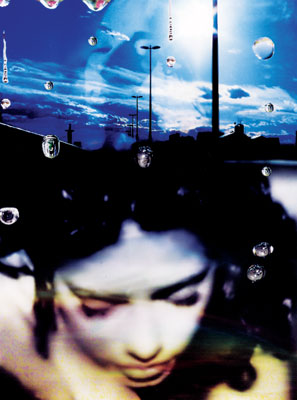All Nonfiction
- Bullying
- Books
- Academic
- Author Interviews
- Celebrity interviews
- College Articles
- College Essays
- Educator of the Year
- Heroes
- Interviews
- Memoir
- Personal Experience
- Sports
- Travel & Culture
All Opinions
- Bullying
- Current Events / Politics
- Discrimination
- Drugs / Alcohol / Smoking
- Entertainment / Celebrities
- Environment
- Love / Relationships
- Movies / Music / TV
- Pop Culture / Trends
- School / College
- Social Issues / Civics
- Spirituality / Religion
- Sports / Hobbies
All Hot Topics
- Bullying
- Community Service
- Environment
- Health
- Letters to the Editor
- Pride & Prejudice
- What Matters
- Back
Summer Guide
- Program Links
- Program Reviews
- Back
College Guide
- College Links
- College Reviews
- College Essays
- College Articles
- Back
The Real Freedom of Speech
School was always about outsmarting people; that’s what made it fun. Sure, there were the social “classes”—determined, back then, by how many products and quotients we correctly defined in around the world, or how many people invited us to their birthday parties—but even in those days of innocence and lack of worldly experience, even then, the most acknowledged of these social “classes” were the select few who used humor against their peers and adult influence; in other words, the humorists. In elementary school, the students who prided themselves in the arts of out-sophisticating others (consisting of those in higher authority than themselves) were the jokers; even then they knew that they could either suffer with this power, or, they could use it to their disposal. Why, despite the harsh punishment of getting a green card pulled, or having recess points erased, those few elementary warriors of comedy pressed on; for it’s power. It’s why comical talent is so often sought-after in society, but also why it’s so dangerous.
Laughter is a drug; you see one person laughing and—even if your original intent was to remain steadfast in your beliefs and press on through the persecution of personal views—it’s like your lungs obtain a mind of there own and force the mirth out of you. One of the dangers of humorists in society is in the very thing sought after by modern general public; laughter. Once a class clown, comedian, or comic, has made you laugh, you can’t really contradict them. They have won. They have won (not only the pleasure of making you laugh, but also) your agreement in whatever topic preceded your laughter. They have won your opinion. If you’ve noticed though, even in primary and early secondary education, they were the ones who were most frequently persecuted by their higher authority (or at least those who would like to call themselves higher authority) and this is because, like previously stated, humor has power. It did in Elementary school just as it does in all stages of life hence-forth.
Do not think that being comical does not come with any personal gain. Because of the popularity that is so wonderfully easy to obtain by satirists, they have high recognition amongst their peers, their audience, their “higher authority” and thus they have high self worth. They make themselves—through their humor—into their own higher authority, undermining the authority of those who currently posses the attention of the crowds. Their high views of themselves and ability to make serious topics with often opposing views, into a laughable matter, allow them to say or do anything and be comfortable in it. A humorists greatest perquisite that comes along with making others laugh, is that they are given more leniency in the topics and people they are able to openly oppose, agree to, or make fun of. Once they make the general public laugh at something—whether it be at the sometimes questionably informal dress choice of a well-known person, the way a company is known for it‘s lethargic employees, or even down to the sexual orientation of an individual—even if you once found it offensive, and would not have laughed had it not been presented in such a satirical manner, you would be a hypocrite to contradict yourself later. A laugh cannot be apologized for or taken back like a inadvertent comment can, and thus the power of the humorist grows.
So you see, humorists’ power is interwoven at the very nature of they’re talent. The laughter they lend can be as dangerously trapping to their audience as it is bubbly and temporarily problem-ridding. That is why, even in the real world comedians are as persecuted for their talent (and it’s tendency to trap a crowd with laughter), just as class clowns were likewise persecuted way back in grade school, and for the same reason; humorists, both big and small, have high recognition in whatever environment they are placed into—whether that is a society or a classroom—they will continue obtaining high recognition, high self-esteem, and will be able to continue saying what others can’t with a lower rate of opposition.
Humorists are dangerous in ability, but a vital division of society.
Possessing an ability to say what no one else can (or what everyone’s thinking) humorists are unique in their abilities. They have the inimitable power to make-inefficient an electronic that was recently hot on the market, or bring a politician off their high horse. They can, with a series of re-rehearsed jokes, have an audience “under their thumb” so to speak, and all because, in all truth, we want to laugh. And where there’s demand—as it’s always been in society—someone will supply.

Similar Articles
JOIN THE DISCUSSION
This article has 0 comments.
